Error effects handling
Errors in niva is something between errors as values(go\rust) and exceptions(JS\Vala\C#\Kotlin). Both approaches have their advantages.
With errors as values, you can always see the possible errors of a function right from its signature, but you always need to unpack the results one way or another (if err not nil in go and unpacking Result type in ML)
(Screenshot from Roc talk)
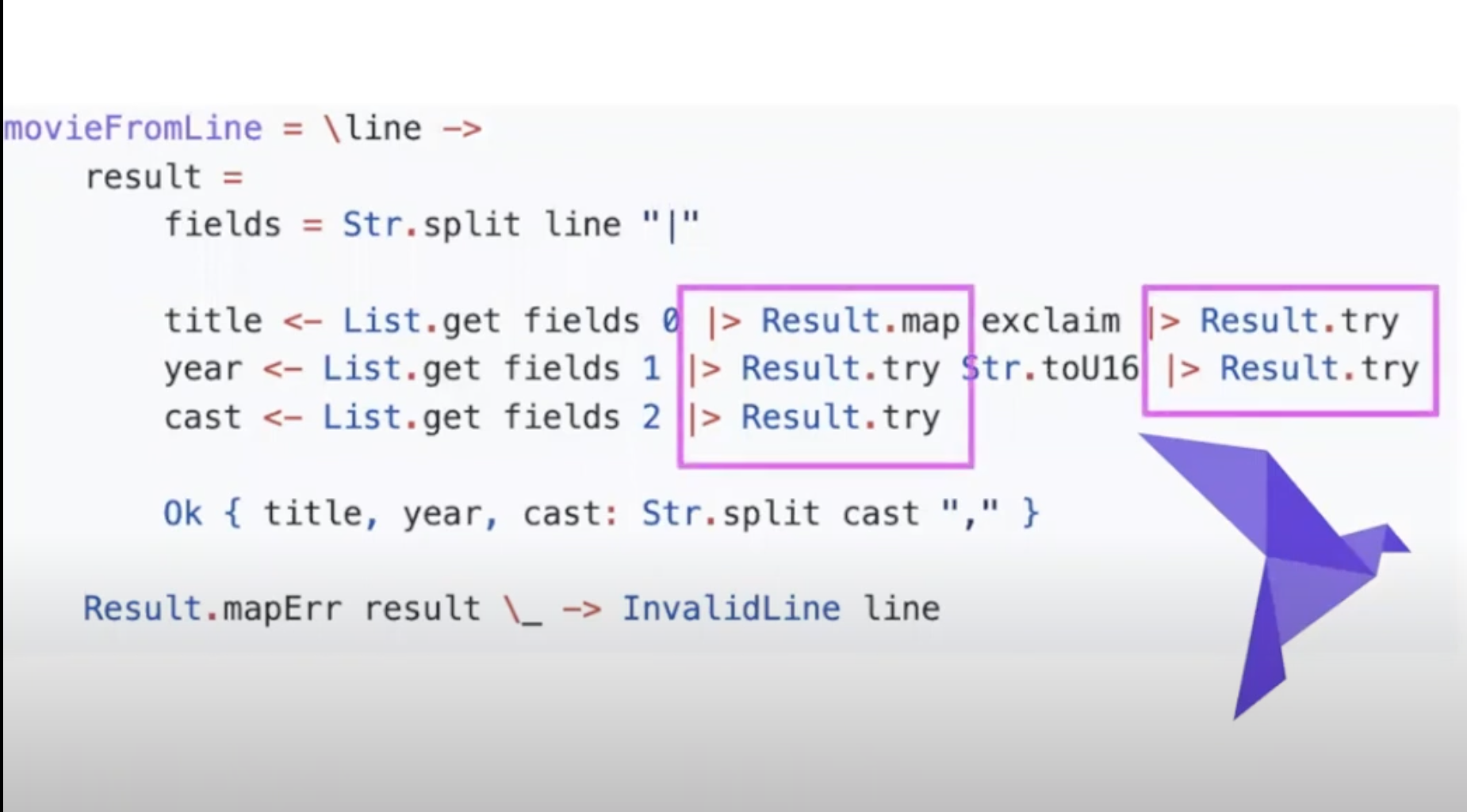
And with exceptions, you do not see possible problems, as if walking blindly, you cannot guarantee that you have processed all possible errors, even if go to implementation of the function and manual verification does not guarantee this, because any of the called functions there can also throw an exception.
But this approach also has advantages, the case when you can't do anything about the error except to terminate the program is quite common, and when this is the default behavior, you just get rid of the need for a boiler plate to unpack possible errors.
Also, when you prototype something, it doesn't matter to you that something can go wrong, you need a scripting like experience.
In niva I combined both of these approaches into one. Errors are effects that propagate through the call stack until you process them.
Errors should be placed in the function signature, here a fake example: File read -> String!{NoSuchFile, CantRead}
Return type is still String, its marked with ! which meanst that method can throw NoSuchFile or CantRead error.
There is also a lazy variant, you can omit the error list: File read -> String! This means the same, the compiler will still infer the correct set of errors.
Now lest see go to practice.
// Errors in go https://x.com/zack_overflow/status/1850620600882258374
Default Error type
There is a built in Error with a single message throwWithMessage:
You can use it to throw the general errors.
Custom error types declaration
You can define your specific errors the same way you define unions:
Then you can create such error and throw it with throw unary msg:
After that you will get a compiler error:
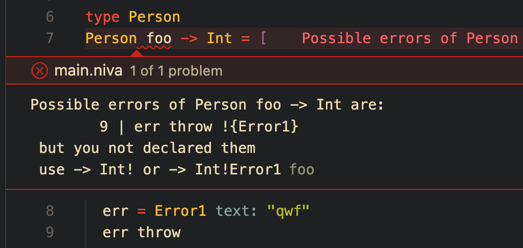
It says that possible errors detected, where are they, and what you should do.
So for now lets add this suggested return type and change Person foo -> Int = [ to Person foo -> Int!Error1 = [
The compiler error disappear, because now the return type says it can be error there.
But now, if we call this foo message from another:
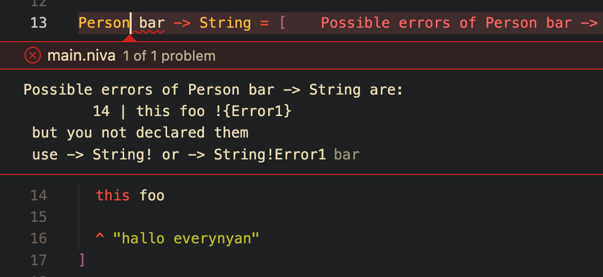
That's what I meant by saying "Errors are effects that propagate through the call stack until you process them", I hope now you get it.
The error will stay until you process it somehow, lets move to that part.
Processing errors
orPANIC
If your program can't continue you can send orPANIC message, and program will stop in case of an error:
And you will receive the minimalistic looking stack trace:
orValue
orValue will replace the error with the value in case of an error:
You can see that return type of bar doesn't contain errors, its just String, because all the possible errors were processed!
ifError
ifError message is for cases when many messages are possible and you need to do different things depending what error you get.
Lets change the foo implementation so it can throw both Error1 or Error2:
Have you noticed that the error declaration looks the same as union? That's because it is! And just like for unions, you can use match to automatically generate and process all cases!
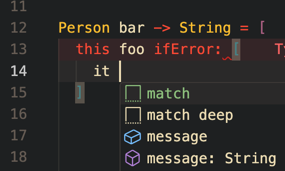
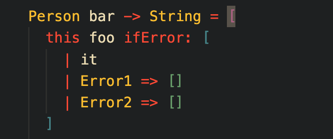
ifError: is a message that takes a codeblock with one parameter, this parameter is a union of all possible errors.
Now when when you run this you will get got error with code: 404! in console.
This match is exhaustive(unions!) so if you miss any error kind it will tell you.

ifError as expression
You can return values from each of ifError branches
Here is a full code, so you can copy it to your editor and try it yourself _
Now each branch of error matching returns a number, then it assigns to result and we print it. got error with code: 404! 34